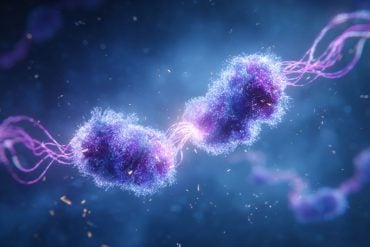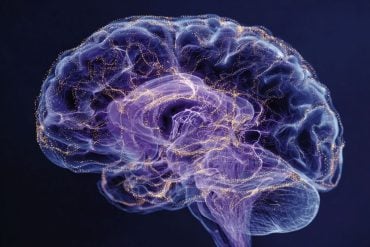Summary: A new study reveals that adverse childhood experiences make adults more emotionally reactive—not only to negative events, but also to positive ones. People with a history of abuse or neglect were more likely to feel distress during everyday setbacks and less likely to experience joy from good moments.
In some cases, even positive events triggered negative emotions, highlighting a long-lasting emotional imprint. These findings suggest that childhood adversity subtly shapes emotional life in adulthood, even for those without clinical mental health diagnoses.
Key Facts:
- Blunted Joy Response: Adults with childhood adversity feel less happiness from positive events.
- Emotional Oversensitivity: They react more intensely to daily stress and problems.
- Lasting Impact: Childhood trauma affects emotional experiences well into later adulthood.
Source: Heriot Watt University
Bad experiences in childhood can have long-lasting effects, making people more sensitive to their daily ups and downs as adults.
A new study from Heriot-Watt University shows that adverse childhood experiences not only cause people to respond more negatively to bad events.
It also affects how they respond to good events in daily life.

The research is published in Emotion, a journal published by the American Psychological Association.
Negative reactions to lows and highs
Dr Sophie Potter from Heriot-Watt University’s School of Social Sciences, with colleagues from the University of Leicester and the Max Planck Institute for Human Development in Berlin, investigated how childhood adversity affects people’s reactions to everyday experiences, good and bad.
They studied nearly 2000 adults aged 35 to 86. For eight days, participants wrote about their experiences and emotions.
Dr Potter said: “Most research has focused on how people with difficult childhoods react more strongly to bad events, like stress or problems.
“But there’s not much on how childhood adversity affects people’s ability to feel joy or happiness at positive events, like having a laugh with friends or receiving positive feedback at work.”
“People who faced physical and emotional abuse as children had stronger emotional reactions to daily problems.
“Not only do they have a more negative reaction to bad events, but they are also less likely to feel happy about good things.
“In fact, good events appear to trigger negative reactions.”
A ‘subtle effect’ on daily life
Potter points out that around 30% of adults in Western countries have experienced adversity in their childhoods, but our knowledge of its impact focuses on a small group of people.
“A lot of research has been conducted with people who have gone on to experience clinical levels of depression or anxiety, for example, instead of the general population.
“There will be thousands of people in the UK and across other western nations who aren’t suffering from a major clinical disorder, but childhood adversity may still be having a subtle effect on their daily life.
“Understanding that childhood adversity could be affecting how you experience good and bad events could help people self-regulate and adapt.”
The research used the MIDUS dataset, and Potter says she would like to expand the research with a bigger group of people.
“It would be interesting to use data from more diverse groups, whether it’s race and ethnicity or age. I’d be very interested to find out if there’s an age at which childhood adversity loses its effects on people’s behaviour, if there’s a resilience or self-knowledge that kicks in.”
About this child adversity and mental health research news
Author: Victoria Masterson
Source: Heriot Watt University
Contact: Victoria Masterson – Heriot Watt University
Image: The image is credited to Neuroscience News
Original Research: Closed access.
“Emotional reactivity to daily positive and negative events in adulthood: The role of adverse childhood experiences” by Sophie Potter et al. Emotion
Abstract
Emotional reactivity to daily positive and negative events in adulthood: The role of adverse childhood experiences
Adverse childhood experiences (ACEs) have lasting impact on everyday emotional experiences in adulthood, with extant evidence linking ACEs to elevated emotional reactivity.
However, findings are typically based on reactivity to negative daily events (i.e., stressors) and its moderation by cumulative ACEs (where individual adversities are summed into a total score), which overlooks adversity-specific associations and reactivity to other types of daily events.
We therefore examine cumulative and individual ACEs as moderators of emotional reactivity to positive and negative daily events. Data were drawn from the National Study of Daily Experiences 2 (NSDE-II), collected 2004–2009, whereupon middle-aged and older adults (N = 1,994; Mage = 58.61; range = 35–86; 57% female) reported daily events and affect on eight consecutive evenings.
Multilevel models were used to estimate the moderating role of ACEs for within-person associations between positive/negative events and affect.
We found that cumulative ACEs and a number of individual adversities (specifically those characterized by abuse but not by neglect or household challenge/dysfunction) were associated with emotional reactivity to positive and negative daily events. That is, cumulative and abuse-based ACEs were associated with increased negative affect and/or decreased positive affect on days with a negative event and on days with a positive event.
Our findings add to literature on the long-lasting and pervasive influence of early life experiences on everyday emotional experiences in adulthood.
We discuss differences in reactivity to positive versus negative daily events and in cumulative versus adversity-specific associations as well as their theoretical and methodological implications.






